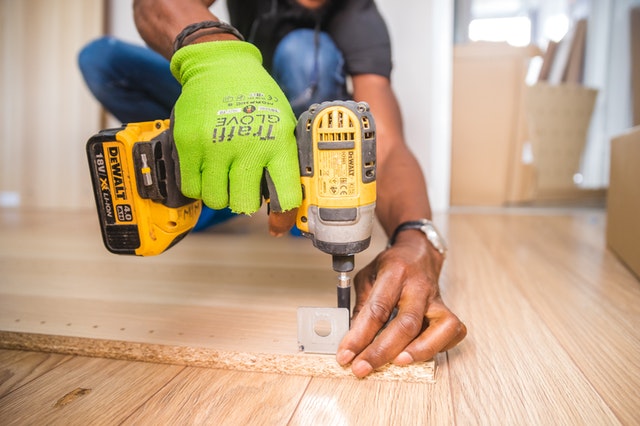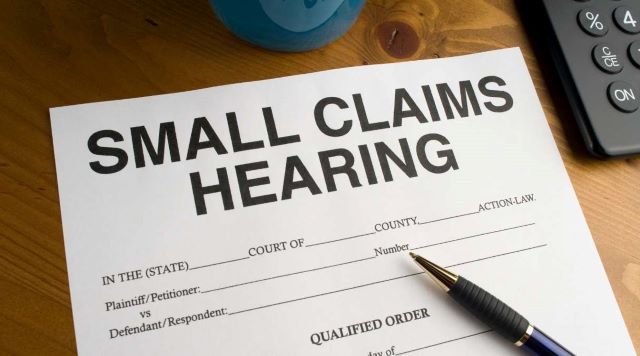Is My Landlord Responsible for Repairs?
Generally, landlords have a duty to maintain the rental property. Tenants, however, also have their own fair share of responsibilities in maintaining the condition of the rental property.
The lease agreement should be able to highlight who is responsible for specific maintenance and repairs.
State Laws and Lease Agreements
The lease contract is a good guide to use when it comes to addressing maintenance issues that arise during tenancy. Keep a copy of the document handy and refer to it when the need arises.
If it’s not in your lease agreement, the best thing to do is to review the state and local laws so you would know whose shoulders the responsibility will fall on.
Tenants should always take note of their effort to fix a maintenance issue by putting in a written request addressed to their landlord. Written records like this are a good instrument in resolving conflicts between a tenant and their landlord.
When Is a Landlord Responsible for Paying for Repairs?
A landlord must always keep a property in a livable condition, especially during a tenancy. This includes avoiding anything that can put the tenant in danger, as well as repairing normal wear and tear and any damages that go beyond being caused by regular use.
Generally, landlords must shoulder issues and conduct major repairs of anything that affects the habitability of the property such as:
- Electrical wiring problems
- Gas pipes and boilers
- Heating and hot water issues
- Chimneys and ventilation
- Sinks, baths, toilets, pipes and drains
- Presence of mold and/or mildew
- Pest infestations
- Broken locks and other damaged safety measures
- Common areas including entrance halls and stairways
- The structure and exterior of the building, including walls, stairs and banisters, as well as the roof, external doors, and windows
When Must a Tenant Pay for Repairs?
If a tenant invites guests over to the property, they become their responsibility. This means that if a tenant or their guests cause damage to the property, it is the tenant’s responsibility to take care of having the damages repaired or replaced.
Examples of repairs that should be covered by tenants are the following:
- Burnt out lightbulbs
- Stained countertops
- Damage caused by the tenant, their family, or their guests
- Damage caused by pets
- Damaged furniture or appliances
- Any minor repairs specified in the lease agreement
What Should a Tenant Do if Their Landlord Won’t Repair Damages?
If a landlord is unable to meet their responsibilities as agreed, a tenant can refer to different sources to decide on their next course of action.
All parties have their own responsibilities to fulfill during a tenancy. These are listed in the following:
- State and local laws
- Local building codes
- Lease agreements
Tenants must know their rights and responsibilities so they can properly hold up their end of the bargain and know when to request repairs from their landlord.
Communication is key when resolving disputes and issues that come up. However, if a landlord continues to ignore, delay, or refuse to address a problem, tenants can choose from other available options.
An example is filing a claim or dispute in small claims court or reaching out to the local housing authority to mediate.
What determines the next steps will be based on a lot of factors, including:
- Landlord’s reaction and approach
- Negligence: If the landlord’s negligence caused injury or damage as a result of ignoring the repair request
- Private nuisance: This happens when a common part of a building or complex, which is also owned by the landlord, affects the enjoyment and use of a tenant’s home
- Statutory nuisance: This is when the state of a rental home causes health issues or is a nuisance
- Reason and severity of the issue
- Local and state laws and regulations
Tenants need to weigh all their options and always make an effort to settle disputes amicably before bringing things to court.
Repair and Deduct
When landlords refuse to do something about damages, tenants would pay for the repair and have it deducted from the monthly rent. This strategy is called “repair and deduct.” It leads the landlord to hold up their end of the bargain.
Tenants should be extra cautious when using this method, as this may be viewed as withholding rent from the landlord, which could be a reason for eviction.
When to Use the Repair and Deduct Strategy
Before using the repair and deduct tactic, tenants must confirm that it truly is the landlord’s responsibility to repair the damage. Once they’re sure it is, tenants must inform their landlord about the issue and, if possible, put it in writing to have a record of the timeline.
Local and state laws will determine how much time a landlord has to take care of the issue, and if they fail to meet the required timeframe, tenants can start the repair and deduct process.
The process usually starts with a written letter or email sent to the landlord. The message must include the issue/damage, what needs to be done to fix or repair, estimated cost of the repair, and the deadline on when the landlord is expected to respond.
It should also include the tenant’s intent to make the repair themself and deduct the cost from the monthly rent. The deadline indicated in the letter must be reasonable so that the landlord has ample time to work on the request.
Tenants should always make it a habit to keep copies of all correspondence and receipts so everything is documented.
It’s important to note that the repair and deduct option is not always applicable. Usually minor repairs are not qualified for this option. To be sure, tenants must check both state and local laws if they plan to go through with it.
Conclusion
If you want to avoid the stress of having maintenance in the rental home done, it’s best to hire Limehouse Property Management!
We’re a full-service property management company who’ll take care of coordinating with our contractors and vendors. There will always be someone manning our portal who’ll acknowledge your maintenance and repair requests and let you know of the next steps to take.
Reach out to Limehouse Property Management today to get started!



